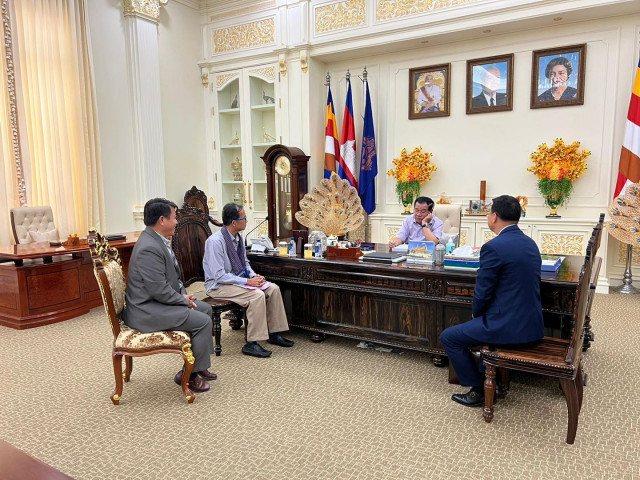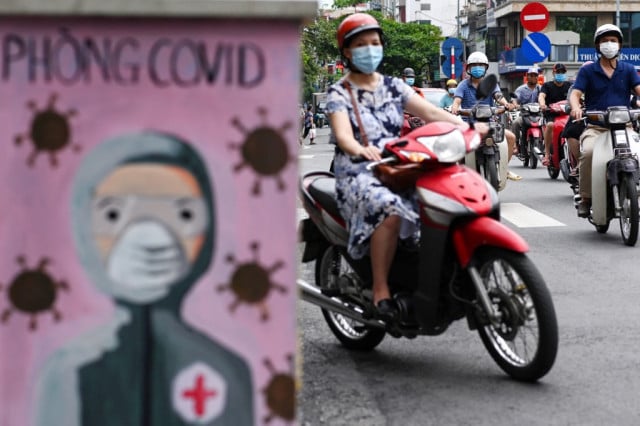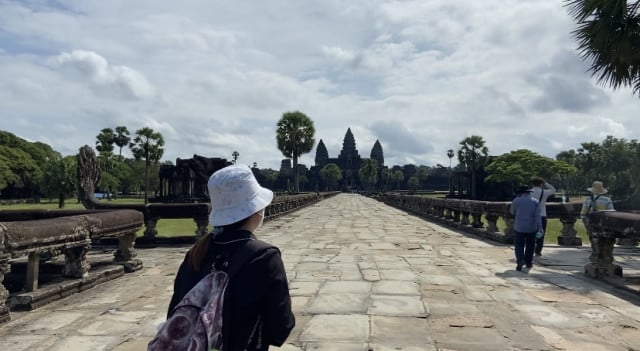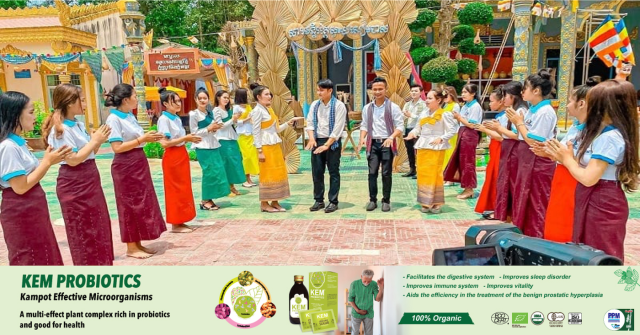Koma Meets PM With Farm Boost Plan

- By Torn Chanritheara
- November 28, 2022 4:48 PM
PHNOM PENH – Former Grassroot Democratic Party leader Yang Saing Koma met Prime Minister Hun Sen on Nov. 28 to find ways to help farmers and promote the agricultural sector.
A Facebook post on PM Hun Sen’s page said that recently-appointed Minister of Agriculture Tith Dina was also present with Saing Koma’s close aide Loek Sothea.
The meeting came after Saing Koma and Sothea wrote asking Hun Sen to allow them to join the ruling Cambodian People’s Party to help deal with agriculture issues.
Hun Sen confirmed that both are now part of the CPP.
“Met with the Minister of Agriculture Dith Tina and Dr. Yang Saing Koma and Loek Sothea on agricultural work as the two just came to live together with the Cambodian People’s Party,” he wrote on Facebook.
Koma was one of the founders of the Grassroots Democratic Party in 2015. The GDP, which is considered a party of intellectuals, participated in the 2018 national election but did not win a seat in the National Assembly. However, it won six seats in the 2022 commune elections.
In a separate post the same day, Koma proposed a plan to the government to solve rice production and market problems which would help a million farmers if it succeeds.
Consisting of 12 points and focusing on production chains and the rice market, the plan includes strengthening and expanding research, production and supply of good pure rice seeds and with high demand to farmers; training, guidance and advice to farmers, especially on the use of inputs and post-harvest management.
Koma also call for establishing standards and mechanisms to control and certify rice quality and set minimum prices for rice varieties including luxury fragrant varieties, regular fragrant varieties and regular dry rice varieties as well as working with the Agricultural and Rural Development Bank and other financial institutions to raise capital for rice mills, rice trading companies and farming communities.
“We need at least five years to implement this plan nationwide,” he said.















